The power of humanity
22 April 2025
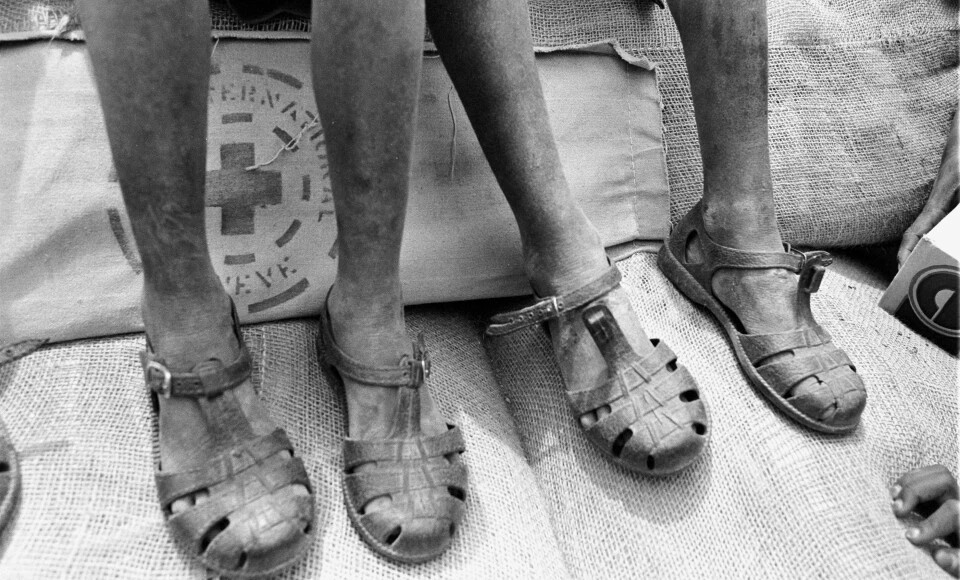
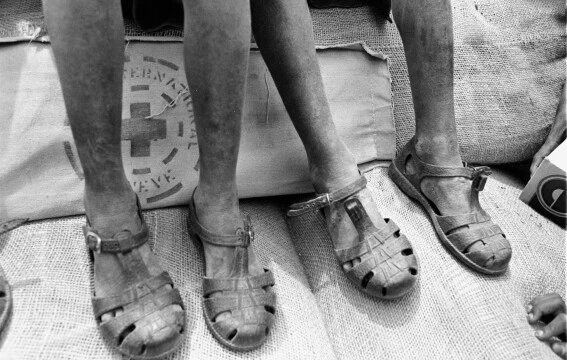
Peter Scott was an Outward Bound instructor studying business when he applied to be an international delegate in 1996. Now our Pacific Programmes Lead, his first assignment was to southern Sudan in 1999.
Peter was a ‘generalist delegate’, with areas of expertise in logistics, economic security, and aspects of development. Economic security covers people’s essential needs and includes things like clothing, food, and self-sufficiency.
He went on several missions as a delegate from 1999 to 2006 and worked almost exclusively in conflict zones with International Committee of the Red Cross (ICRC). During this time, he provided humanitarian relief in South Sudan (formerly Sudan), Darfur, Eritrea, Serbia, Montenegro, Afghanistan, and Pakistan-administered Kashmir.
Through it all, what struck Peter was the humanity he saw every day from people living under appalling conditions. “People were living basic existences, but you see all the same things you see here in New Zealand – families who love each other, kids who just want to have fun.”
Doing something, because nothing isn’t an option
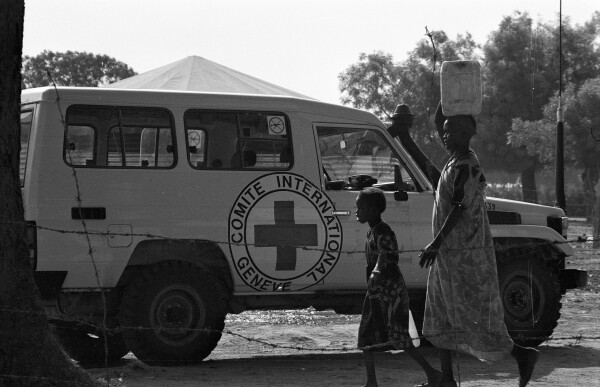
Bentiu in what’s now South Sudan, 1999.
Armed conflict is a destabilising force. On top of the trauma and suffering experienced by victims of armed violence, conflict causes intergenerational poverty, deaths from treatable illness, and famine.
“As a delegate you get challenged in so many ways, in the ways you think and the ways you act. Things that you would never, ever necessarily think about in safe old Featherston – this is a daily reality for people in other parts of the world.”
New ethical dilemmas were presented to Peter and his team every day. In Northeast Africa, food was a commodity that could be traded, which made it highly valuable. Food was also a way for armed groups to control people.
When ICRC distributed seeds and tools so people could grow their own food, these were quickly stolen. It was an almost impossible situation to work in, where there was so much need and solutions weren’t always going to work.
“What else do you do? If you don't give them anything, they die. If you do give them something and it gets stolen, they might still die. Let's at least try. Because if you don't do anything, there's a 100% chance that no one is going to survive.”
Joy when there’s nothing else
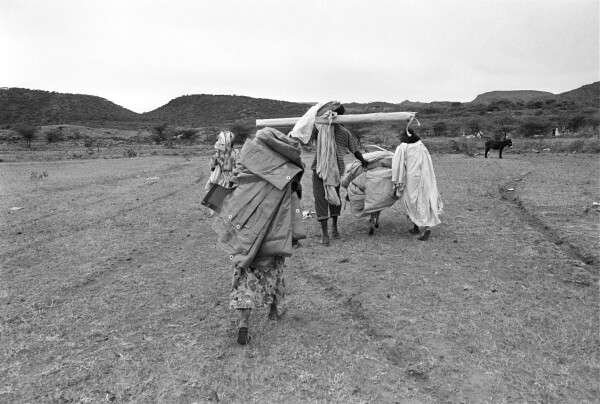
People carrying tents to set up in a displaced persons camp in Eritrea, 2000.
At one stage in Northeastern Africa, Peter and the team didn’t have a lot of tangible support to offer people. So instead, he would take the ICRC vehicle to the internally displaced persons camp to visit the community, which was a special highlight for children.
“They'd come round the vehicle, so I’d get out and point at myself and say ‘Peter’. After a few days, as soon as the Land Cruiser came in, all these kids would come running out and shout ‘Peter, Peter, Peter, Peter, Peter, Peter, Peter!’”
Eventually, it didn’t matter who was in the vehicle – everyone was ‘Peter’. Though Peter and ICRC had little to offer at that time, their mere presence had an impact on people, he says.
“When we talk about impact reporting nowadays, for me that was an example of impact by accident. How do you measure the Pālagi who jumps out of a vehicle and has a smile on his face and is being friendly. How do you quantify joy? How do we quantify humanity?”
A boy called Adam
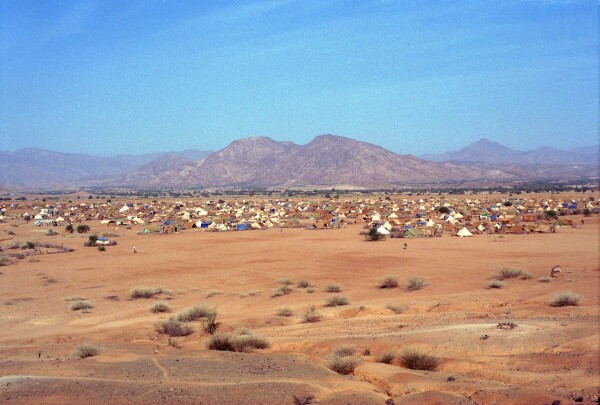
A displaced persons camp in Eritrea, 2001.
Adam was six or seven years old when his village was attacked by the Janjaweed, who slaughtered his family, friends, and neighbours. He and others ran for their lives while people died around them – either drowning in wadis (temporary bodies of water) or being murdered when they emerged.
Adam and others from his village travelled on foot for 18 hours to reach the relative safety of a newly-formed internally displaced persons’ camp, where Peter was based with ICRC. Adam came to the ICRC team to see if they could help him find his uncle.
“I sat there with my field officer, and we interviewed him for about probably half an hour, just asking him questions. The little kid was so stoic the whole way through. Then we asked him about his mother, and he lost it. He just completely broke down. He was almost inconsolable, tears running down his face.”
“His mother had died five years before. He'd just gone through an incredibly traumatic situation, but the thing that blew him away was reference to his mother, who he could barely remember.”
Peter gave Adam his business card, so he’d be able to let ICRC know if he found his uncle in the camp. Over the following weeks, Peter would see Adam with the business card in his hand whenever he visited the camp.
“One day he came up and he had this man beside him – it was his uncle. He'd been reunited.”
Upholding humanity
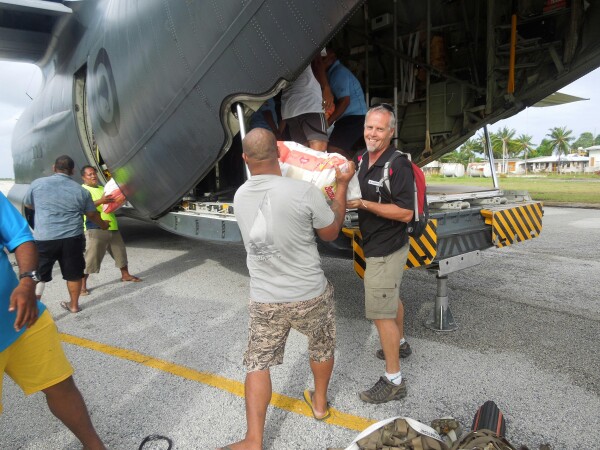
Peter in Tuvalu as part of the response to Tropical Cyclone Pam in 2015.
After his assignment to Pakistan-administered Kashmir in 2006, Peter took almost nine years off from international work. During this time, he worked for Refugee Services Aotearoa New Zealand and managed a company providing paid work experience to former refugees.
When Red Cross absorbed Refugee Services, Peter joined Red Cross as National Membership manager for two years before rejoining the delegate programme in the Pacific. Since 2017, he’s worked with the International Programmes team mainly supporting New Zealand Red Cross work in the Pacific.
He considers himself blessed to have been able to do the work that he did and the period that he was able to do his work in. Since starting as a delegate, he says armed conflict has changed, aid work has changed, and some of areas of the world he worked in have become even more politically unstable. He’s seen temporary camps become permanent communities and has suffered his own losses in areas where our Movement operates. In 2001, Peter’s friend and colleague Rita Fox was among six ICRC staff members murdered in the Democratic Republic of the Congo.
“For me, when I think back to my early days of being a delegate, yes, we did some great stuff. Yes, we changed people's lives for the better through some tangible things that we gave. But sometimes we were just there. And that had to be enough.”
Header image: Children in a displaced persons camp in Eritrea, 2000.
More information
- In times of disasters, conflict, and other emergencies, we respond to the needs of vulnerable people around the world.
What we do overseas - If you want to get involved in our work, join us! We have volunteer roles to suit everyone.
Find a volunteer role - Donate to support our work, including sending people like Peter overseas to uphold humanity.
Donate to where the need is greatest
